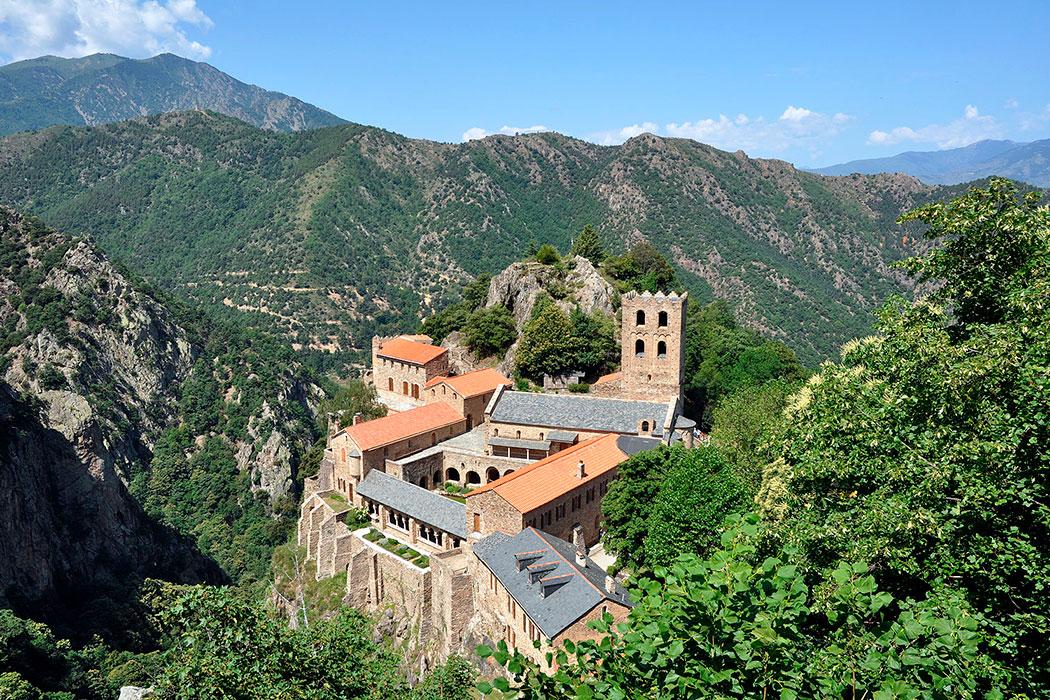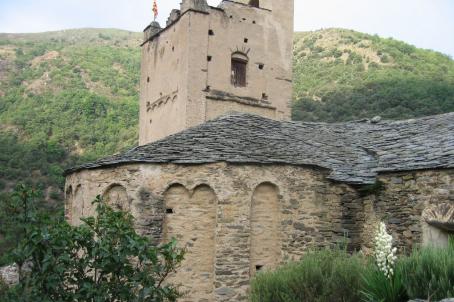Monastery of Sant Martí del Canigó
This monastery was founded thanks to Count Guifré II of Cerdanya, who built a church dedicated to Saint Martin. The church was consecrated in 1009. It remained active until it was secularised in 1782 and in the following years it fell into ruin and was plundered. The monastic complex has been occupied by the Communauté des Béatitudes since 1988.






